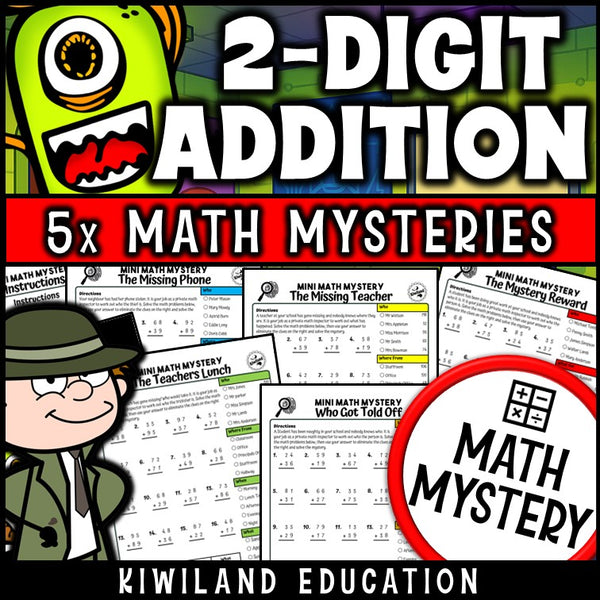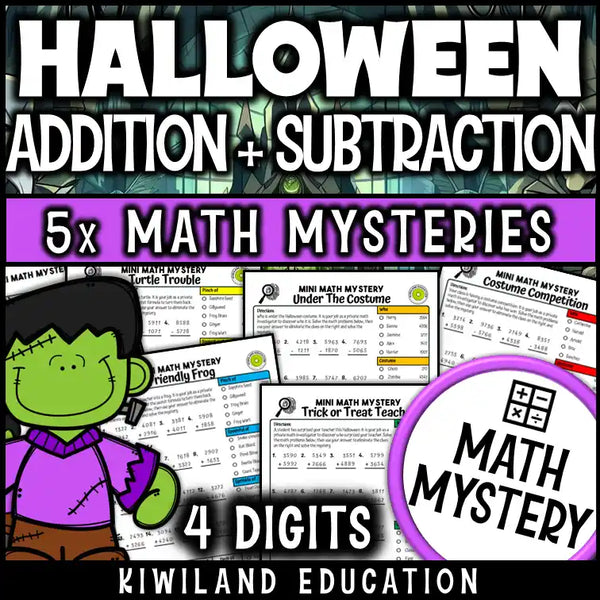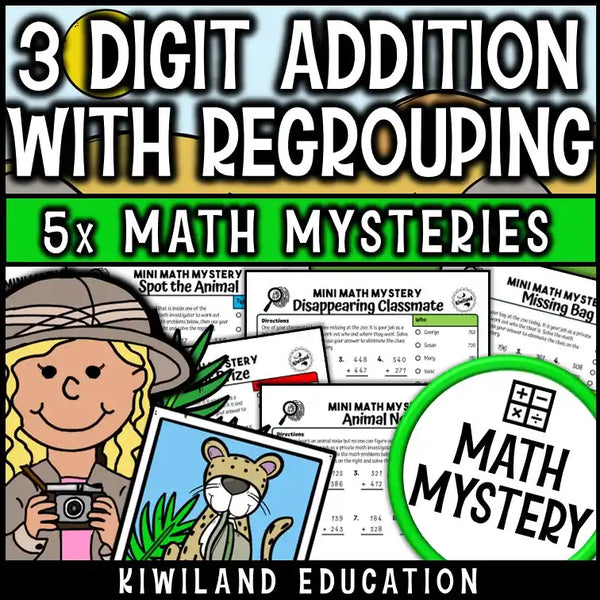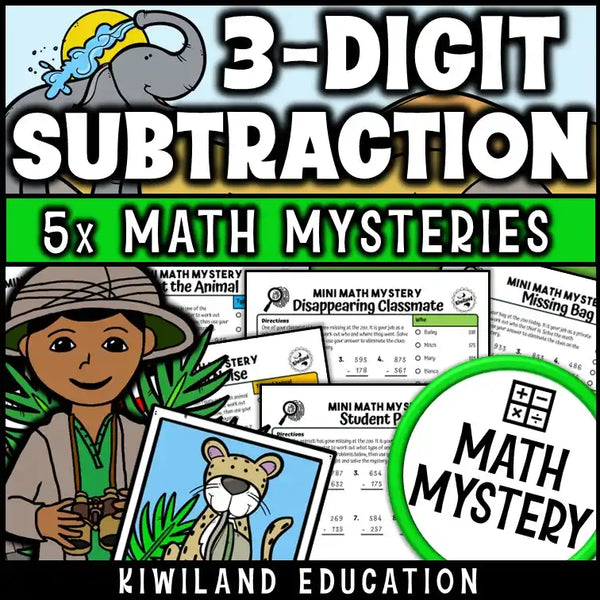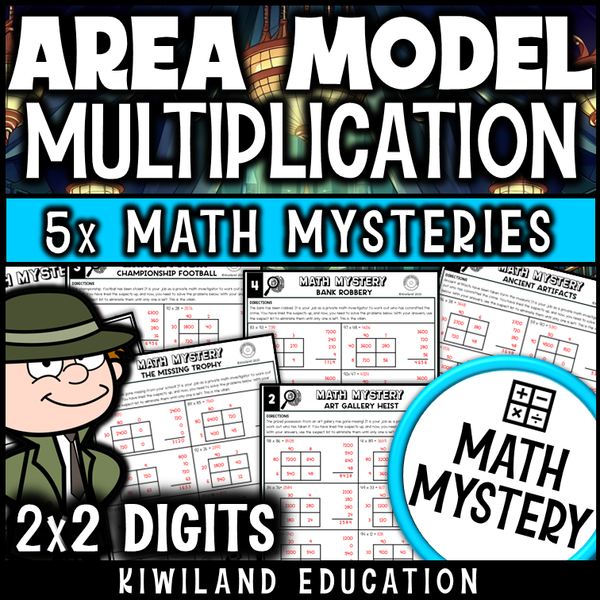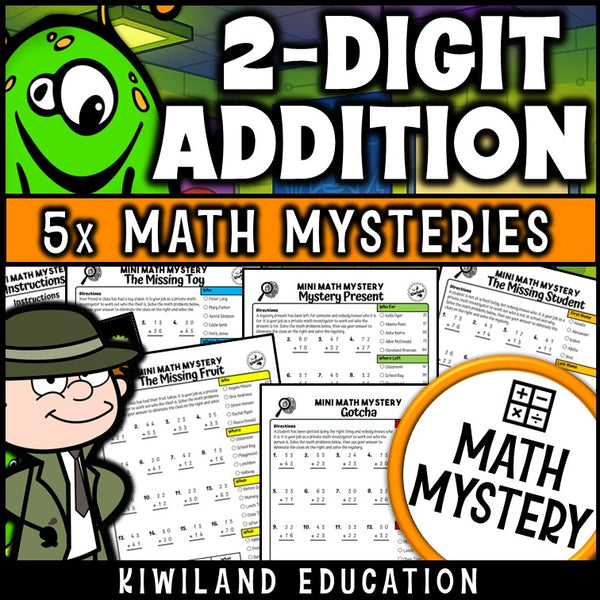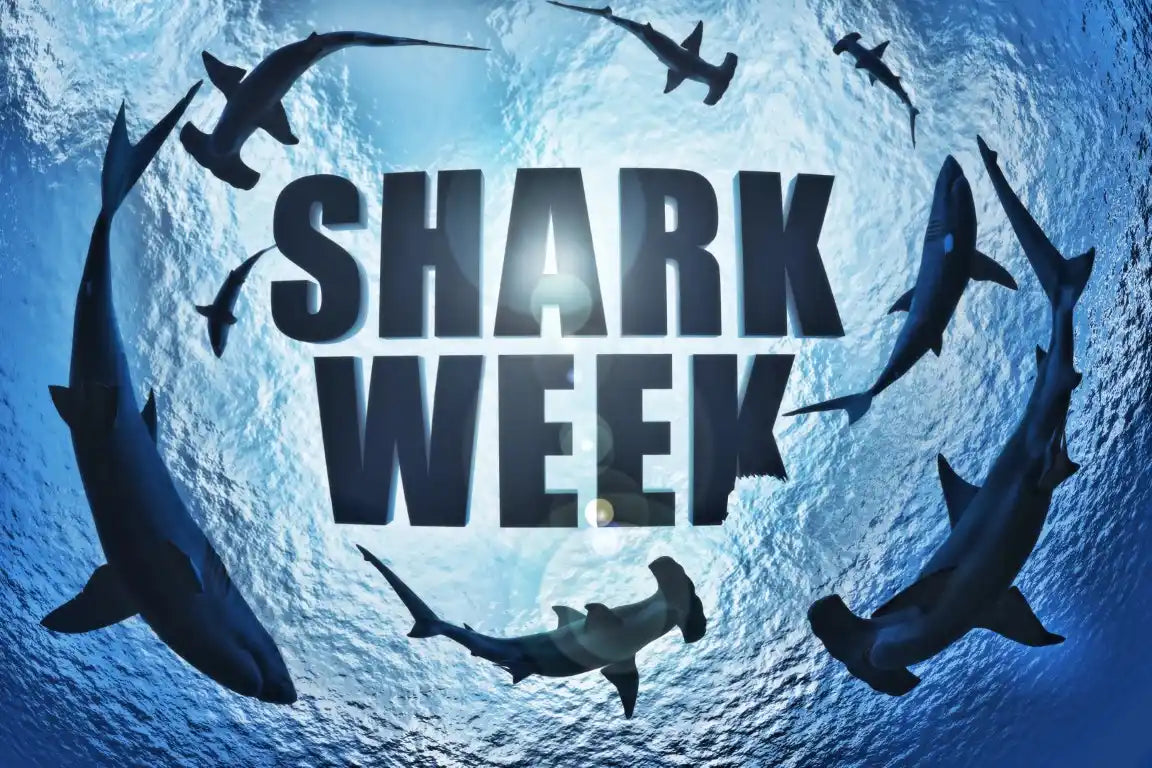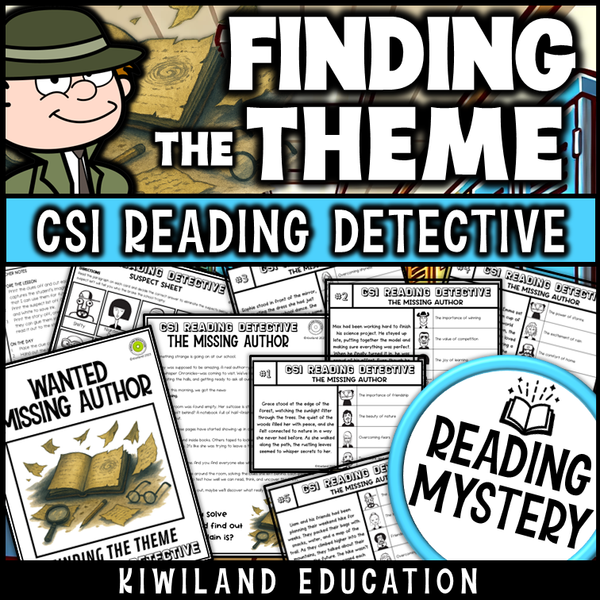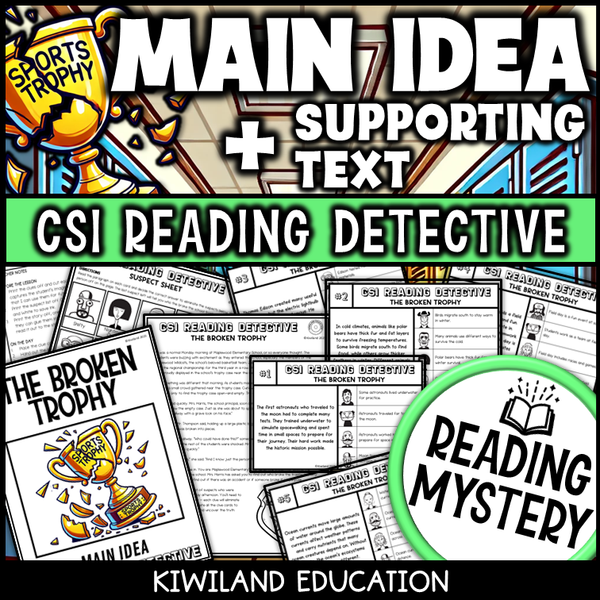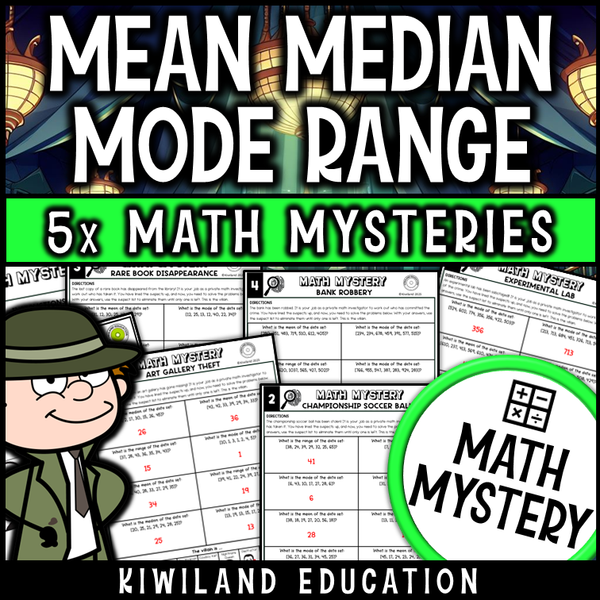As **Shark Week** approaches, the annual buzz around these magnificent ocean creatures provides a unique opportunity for educators. But how do you move beyond the sensationalism and leverage this cultural event for genuine, impactful learning? Many teachers and homeschool parents are actively searching for **engaging Shark Week activities for elementary** and **middle school** students that go beyond passive viewing, seeking **no-prep Shark Week lessons** that truly deepen understanding.
At Kiwiland Education, we understand the need for educational resources that captivate and challenge. That's why we've developed the ultimate **Shark Week reading comprehension mystery** designed to do just that: our **Shark Myths Reading Comprehension Mystery for Grades 3-6**. This resource is perfect for unraveling fascinating **shark myths** while sharpening essential ELA and critical thinking skills, making it an ideal choice for your **homeschool Shark Week curriculum** or classroom unit.
Diving Deep: Why Shark Week is a Premier Learning Opportunity
**Shark Week** offers more than just prime-time entertainment; it's a powerful springboard for multidisciplinary learning. For teachers seeking **educational Shark Week ideas**, its benefits are vast:
- Sparking Natural Curiosity: The inherent mystery and power of sharks immediately grab student attention, creating an organic entry point for scientific inquiry.
- Fostering Scientific Literacy: It provides a real-world context for exploring marine biology, ocean ecosystems, food chains, and even conservation efforts. It's a fantastic way to introduce complex scientific concepts in an accessible way.
- Enhancing Critical Thinking & Media Literacy: Given the dramatization often associated with sharks, it’s an excellent opportunity to teach students to analyze information, question sensational claims, and distinguish scientific fact from fiction – crucial skills in today's digital age.
- Building Empathy & Conservation Awareness: By learning about sharks' vital role in maintaining healthy oceans and the threats they face, students develop a deeper appreciation and a sense of responsibility towards marine life.
- Cross-Curricular Connections: Beyond science, **Shark Week activities** can easily integrate into ELA (reading, writing research reports), social studies (geography of oceans, human impact), and even math (data analysis related to shark populations).
Unmasking the Ocean's Secrets: The Shark Myths Reading Comprehension Mystery
Our **Shark Myths Reading Comprehension Mystery** (explore the activity here) is specifically designed to be the ultimate **Shark Week ELA activity** for **grades 3-6**. This **educational mystery game** transforms learning into an exciting quest, ideal for both **classroom Shark Week units** and engaging **homeschool science activities**.
Here’s how this activity addresses common searches like "engaging reading comprehension for middle school" or "fun science activities for elementary students":
- Compelling Narrative: Students step into the role of a junior marine biologist, tasked with uncovering clues to solve the mystery of missing research data, leading them through fascinating shark facts and dispelling popular myths.
- Rigor Meets Engagement: Each stage presents high-interest reading passages followed by comprehension questions that require close reading, inferencing, identifying main ideas, and analyzing text features. It’s an **interactive reading activity** that doesn't sacrifice academic depth.
- Debunking Myths: The core of the mystery involves confronting and correcting widely held misconceptions about sharks, fostering a more accurate and balanced understanding. This is key for **shark awareness activities** and **ocean conservation lessons**.
- Skill Reinforcement: Beyond general comprehension, students practice vocabulary acquisition, sequencing events, identifying cause and effect, and synthesizing information from multiple sources.
- Zero-Prep for Teachers & Homeschoolers: We know your time is precious. This resource is ready-to-print or assign digitally, requiring minimal setup. Just download, share, and watch your students dive in! It’s a true **time-saving teaching resource**.
- Differentiated Learning: While ideal for grades 3-6, the activity's structure allows for flexible implementation, supporting diverse learners through guided practice or independent challenge.
Integrating Your Shark Week Activity: Classroom & Homeschool Applications
The versatility of the **Shark Myths Reading Comprehension Mystery** makes it a must-have for your Shark Week plans:
- Classroom Centers: A perfect addition to your ELA or science centers, allowing small groups to collaborate.
- Whole-Class Engagement: Project the activity and work through it together as an interactive lesson opener or closer.
- Independent Work: Assign it for homework, quiet work time, or as an enrichment task for early finishers.
- Substitute Teacher Plans: It's a lifesaver! Clearly laid out and engaging, it ensures productive learning even when you're away.
- Homeschool Unit Study: Use it as the cornerstone for a week-long **homeschool Shark Week unit**, combining it with documentaries, art projects, and other marine biology explorations.
- Summer Learning Bridge: Keep those ELA skills sharp during summer break, preventing the "summer slide" with an enjoyable, themed activity.
This resource isn't just about reading; it's about making learning an adventure. Discover more **fun ELA activities** and **educational mysteries** to ignite curiosity in your students!
Frequently Asked Questions: Maximizing Shark Week Learning
What is Shark Week and when does it typically air each year?
Shark Week is an annual, week-long television programming event on the Discovery Channel entirely dedicated to sharks. It typically airs in late July or early August. While the exact dates vary each year, it consistently falls within the summer months, making it a popular time for ocean-themed educational activities.
What are some common myths about sharks that teachers can debunk with students?
Many common shark myths are perpetuated by sensational media. Key myths to debunk include: sharks are mindless killing machines (they are intelligent predators, not indiscriminate killers); all sharks are huge (many species are small); sharks don't get cancer (they do); and that shark attacks on humans are common (they are extremely rare, often cases of mistaken identity). Teaching the reality of sharks fosters scientific literacy and appreciation.
How can teachers and homeschool parents make Shark Week educational and engaging?
To make Shark Week educational, integrate themed activities beyond just watching documentaries. Focus on interdisciplinary learning, combining science (marine biology, ecosystems), ELA (reading comprehension, research), and critical thinking (debunking myths). Use hands-on projects, discussions, and interactive resources like reading comprehension mysteries or virtual field trips to deepen engagement. Kiwiland Education offers a Shark Myths Reading Comprehension Mystery perfect for this.
What subjects can be covered with Shark Week themed activities for elementary and middle school?
Shark Week activities can span multiple subjects. Key areas include: Science (marine biology, ecosystems, conservation, anatomy); ELA (reading comprehension, vocabulary, research, persuasive writing about conservation); Social Studies (geography of oceans, human impact on marine life); and Critical Thinking (analyzing media, distinguishing fact from fiction, problem-solving).
Are there no-prep Shark Week activities available for busy educators?
Yes! Many educational resource providers, like Kiwiland Education, offer "no-prep" or "low-prep" Shark Week activities. These are typically ready-to-use printables or digital assignments that require minimal setup time from teachers or homeschool parents, allowing them to focus on facilitating learning rather than preparing materials. Our Shark Myths Reading Comprehension Mystery is a prime example of a no-prep resource.
Why are sharks important to the health of the ocean ecosystem?
Sharks are crucial apex predators that sit at the top of the food chain in many marine environments. They play a vital role in maintaining the balance of ocean ecosystems by regulating the populations of other species, preventing overpopulation of certain fish, and ensuring the health and biodiversity of marine life. A healthy shark population indicates a healthy ocean.
Hook Your Students This Shark Week!
Don't just watch Shark Week; actively engage your students with it! The **Shark Myths Reading Comprehension Mystery** from Kiwiland Education offers a unique blend of fun, learning, and critical thinking. It's the perfect **no-prep activity** to make this year's **Shark Week** truly unforgettable.
Click here to get your Shark Myths Reading Comprehension Mystery today and let the adventure begin!
